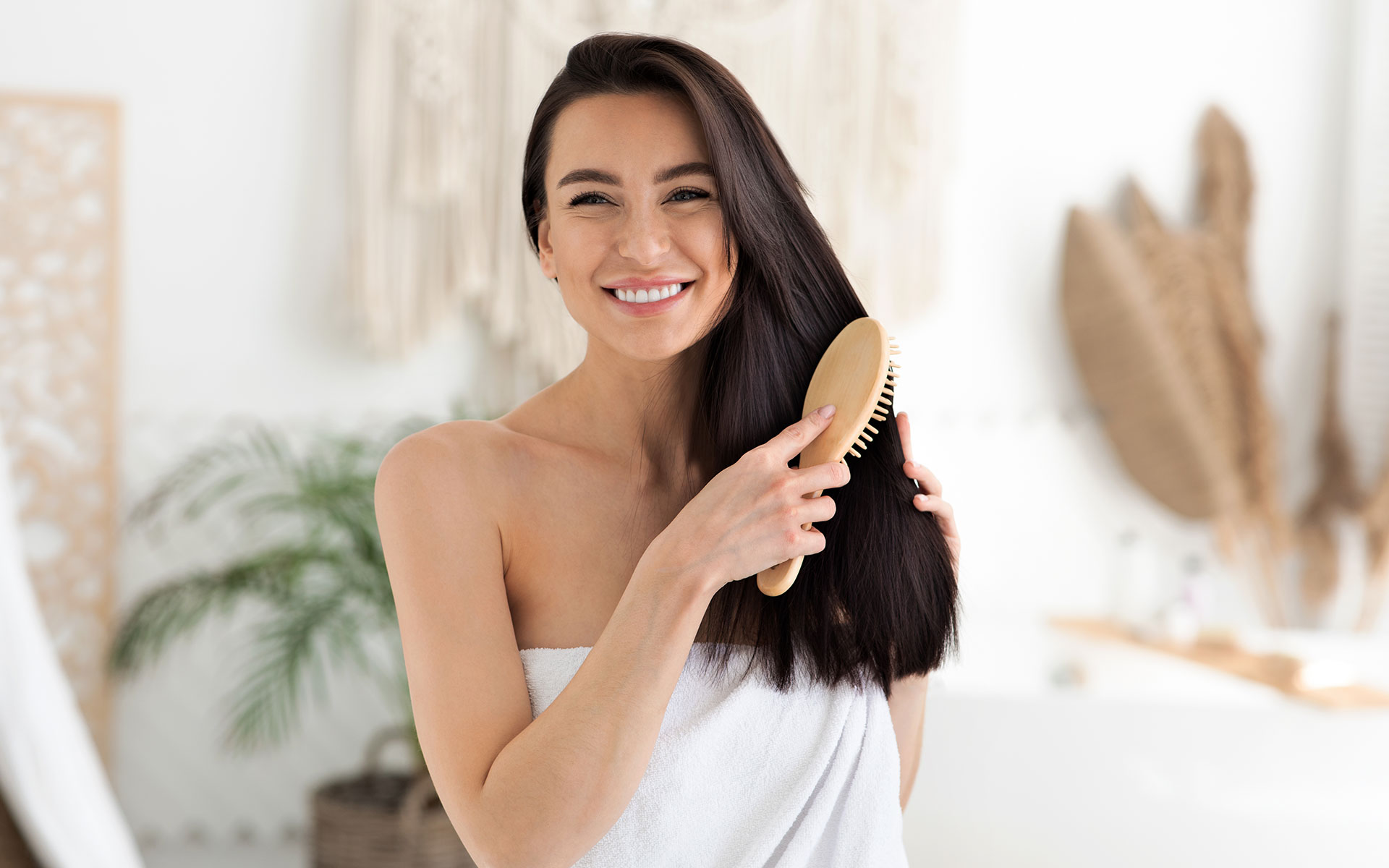
Tips for Healthier and Fuller-Looking Hair

Although genetic factors play an important role in the appearance and density of your hair, weather, pollution and your hair care routine affect your hair health and appearance. With a healthy nutrition program and an appropriate care routine, you can make your hair look much fuller than it is and achieve a healthy appearance. So what should be done for healthy hair?
Have a Protein-Rich Diet
The versatility of your diet is one of the most important factors for hair and scalp health . Your hair strands are mainly composed of protein, so consuming at least 45 grams of protein a day will make your hair look stronger. The best sources for protein are:
- lean meat
- Poultry
- low-fat dairy products
- legumes
- Fish
- Egg
If you have a diet deficient in protein, your hair will appear weaker, brittle and dull. All these will lead to hair loss.
Don't Neglect Zinc
Zinc deficiency is one of the most important factors in hair loss . Therefore, consume nuts such as peanuts, walnuts, cashews and almonds during the day to combat hair loss. In addition, consume green leafy vegetables and fruits rich in zinc. If your zinc level is very low, you may benefit from taking a multivitamin or zinc supplement.
Omega-3 for Your Scalp Health
Having a diet rich in omega-3 fatty acids can stimulate your hair follicles and sebaceous glands. This isn't for hair growth, but it's very important for your scalp health . Salmon, sardines and herring are rich in Omega-3 fatty acids. Apart from these cold water fish, foods such as flaxseed, yogurt and cottage cheese are also rich in Omega-3 acids.
Choose the Right Shampoo and Pay Attention to the Frequency of Washing
Get to know your hair correctly and be careful to choose a shampoo according to your hair type. The frequency of washing will also vary depending on your hair type. If you have very dry hair, washing it every day will dry your hair even more, but if your hair is oily, you can wash it every day. In addition to washing, the shampoo you use will also affect your hair health. Therefore, when choosing a shampoo, you should consider your hair type. Look for products suitable for your hair type – oily, normal or dry – and target any issues you have, such as dandruff. Try to avoid shampoos with harsh ingredients like ammonium lauryl sulfate or sodium lauryl sulfate. And remember, price does not indicate the absolute quality of a product.
Conditioning after shampooing is an important step in keeping your hair soft, shiny and manageable. You can choose a separate conditioner or a shampoo with conditioner. In addition to these, there are some rules that you should pay attention to for your hair health after washing and washing. These;
- Do not shampoo your hair more than once a day.
- Do not use too much shampoo, usually shampooing your hair once is enough.
- Do not wash your hair with very hot or very cold water.
- Hair is 3 times more susceptible to breakage and wear when wet. Therefore, do not rub your wet hair too much with a towel. When combing, use a wide-toothed comb or do not comb it at all because brushing the hair while it is wet is not recommended.
Other Tips for Hair Care
- When blow drying, start at the lowest heat setting and gradually increase the heat as needed.
- Whenever possible, allow your hair to air dry.
- If you want to dye your hair, choose a tone that is within three shades of your natural color.
- Massage your scalp frequently to promote hair growth and increase blood circulation.
- Get a regular haircut – every 10 to 12 weeks – to keep your hair healthy and prevent split ends.
There are some conditions that you should stay away from for strong and healthy hair . For example; harsh shampoos, hair treatments, styling products and excessive brushing are among the top causes of poor hair health. Besides these;
- excessive alcohol consumption
- Diets with low quality and fast food
- thyroid hormone disorder
- extreme stress
- Some medications used for heart problems, high blood pressure and depression also negatively affect hair health.